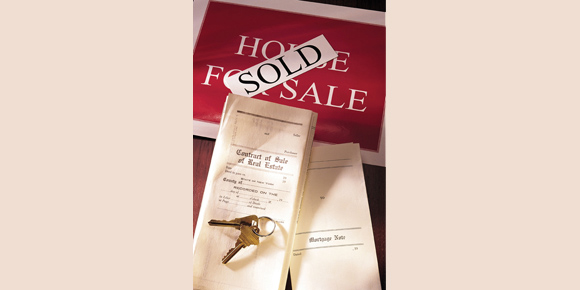by Todd Lewys
In an ideal world, selling a home should be an exercise in objectivity.
Yet, that’s not what happens in the real world.
When vendors put their home up for sale, objectivity quickly flies out the window, because it’s their home — a home that they’ve invested time and money in to make it a special place.
The problem is that prospective buyers don’t see the home in the same way, said REALTOR® Jeff Brown.
“They don’t care that you spent all kinds of money on things like the high-end taps you had installed in your kitchen, bathroom and ensuite,” he said. “To them, they’re just taps, and are just a small part of the home they may be thinking of buying.”
Brown’s example is just once instance of a vendor being unrealistic about the value of their home. Unfortunately, it seems that many vendors continue to believe their homes are worth far more than they actually are.
The latest MLS® statistics show that there are over 3,000 single-detached homes on the market and nearly 1,000 condominiums. Those numbers don’t figure to change unless vendors do something that may seem rather radical: listen to the advice their REALTOR® is giving them.
REALTOR® Garry Hirsch said that when vendors do listen, the results speak for themselves.
“Believe it or not, there is a certain number of clients that actually do listen to what we say,” he said.
“When they do listen to reason, their home sells, and they get list or better.”
That said, those vendors are sadly in the minority. When it comes time to sell their home, most are ruled by their emotions, added Brown.
“I think most vendors have a false sense of value when it comes to pricing their home. With today’s competitive market, you can’t afford to think your home is worth more than it actually is.
“I’ll come in and provide people with information that shows the true value of their home,” said Brown. “Even after I do that, they say, ‘No, my home’s worth more than that.’ That’s ridiculous.
“As REALTORS®, we’re in the market every day selling homes, and we’re wrong? Get real.”
Hirsch said it’s a scenario that unfolds time after time.
“I’ll meet with a vendor, tell them where I think a home should be priced, and then they’ll argue with me, saying the price should be $20,000, $30,000 more because someone in their family said so.
“When that happens, I’ll ask them, ‘What information do you have to have come up with those numbers?’ Then, I’ll stop and tell them, ‘I’ve been selling homes for 30 years, how long have you?’”
Then, after reluctantly agreeing to go with a vendor’s price for two weeks — with no showings during that time period — he meets with the vendors.
“They ask me, ‘Why isn’t our home selling?’ I tell them the honest truth — it’s overpriced. Buyers know that, and will go elsewhere because there are so many more homes on the market now.
“If there are six similar houses and five are priced at over $300,000 and another is priced right at $289,900, where do you think buyers are going to go, and which one do you think will sell first?”
Another factor complicates matters, added Brown.
“Many people max out when they buy a home, then they get hit with taxes, and realize they made a big mistake,” he said. “When they go to sell their home, they want to get that money back, and price the home too high to make up for their mistake. In a flooded market, the home just sits there.”
That’s why it’s essential that vendors listen to their agents, who are giving them objective advice.
“Vendors will tell me, ‘I need this much in my pocket.’ The truth is that the market doesn’t care. At the end of the day, it’s about how much people are willing to pay for your home,” said Hirsch.
The message to vendors is simple — rely on a REALTORS®’ expertise.
“We know the market and will price the home based on objective data, not emotions. When a vendor lets a REALTOR® do their job, a home will sell fairly quickly for list, or possibly even a bit more, and everyone’s happy. If you don’t, your home could sit for months and sell for 10 per cent under list. Which result sounds better?”



